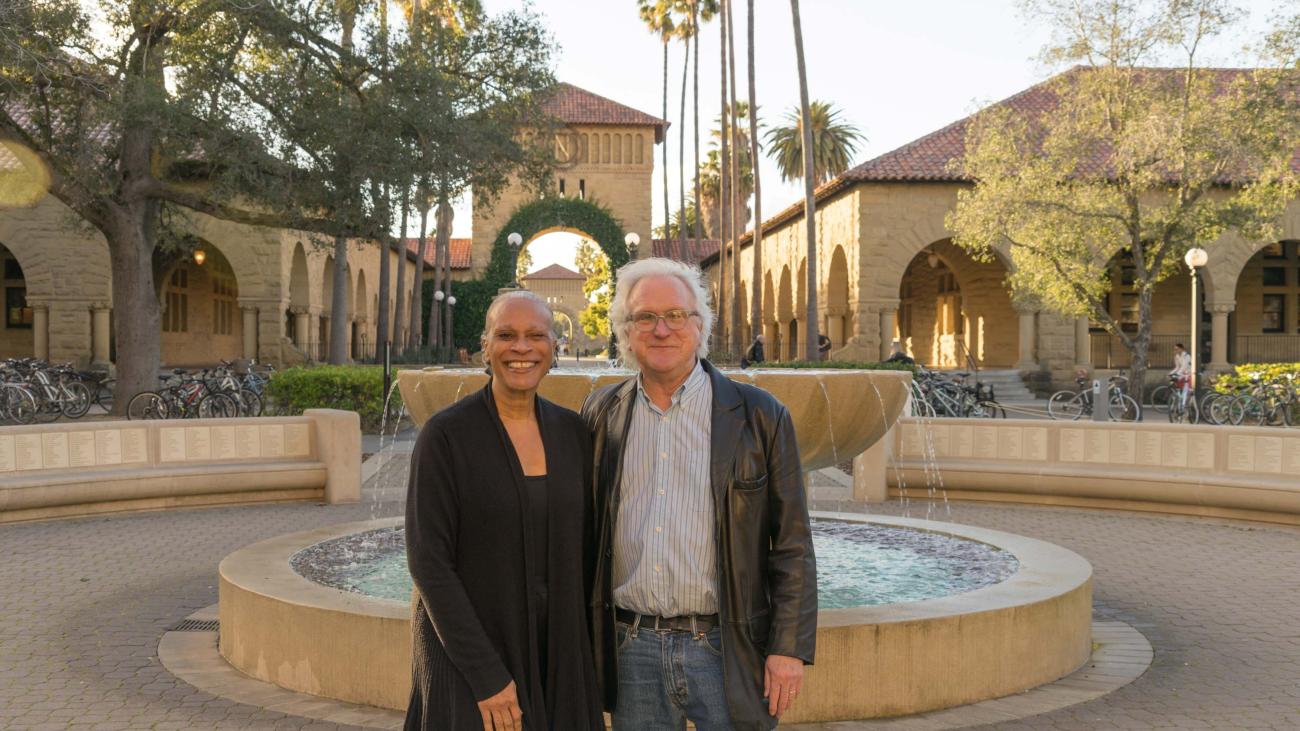
Two Stanford education professors appointed to endowed chairs
Stanford Graduate School of Education (GSE) Professors Arnetha Ball and David Labaree have been appointed to endowed chairs, the highest honor the university can bestow on faculty.
Dean Dan Schwartz announced the appointments at the Feb. 21 GSE faculty meeting.
"Professors Ball and Labaree have honored the GSE with their insightful scholarship and educational leadership for many years. It is a great pleasure to return the honor, while continuing the line of the tremendous thinkers who have held these two chairs," Schwartz said.
Ball was named the Charles E. Ducommun Professor of Education. Her interdisciplinary program of research aims to improve education for urban populations. Ball's work has been concentrated in three intersecting contexts: U.S. schools where predominantly poor African American, Latino/a, and Pacific Islander students are underachieving; community-based organizations that provide alternative education opportunities for academic and/or economic success; and U.S. and South African teacher education programs that prepare teachers to teach students in culturally and linguistically complex classrooms.
Ball, who came to Stanford in 1999 after teaching at the University of Michigan, was a former president of the American Educational Research Association. She is also a member of the Race, Inequality and Language in Education (RILE) program at the GSE and co-director of Stanford's Center for Race, Ethnicity and Language. She is author or co-editor of seven books and dozens of articles. Most recently, with John Rickford and Samy Alim, she co-edited Raciolinguistics, a volume that reveals the central role that language plays in shaping our ideas about race and culture.
Ball received her bachelor of arts and master of science from University of Michigan and her PhD from Stanford. Before joining academia, she taught in preschool, elementary and secondary classrooms.
The professorship was established in 1989 by Ducommun, a Stanford alumnus and former trustee, and is to be held by a faculty member whose specialty is teaching and teacher education. Previous chair holders include Lee Shulman and Linda Darling-Hammond.
Labaree was named the Lee L. Jacks Professor of Education. Labaree, who came to Stanford in 2003 from Michigan State University, is a sociologically-oriented historian, who also holds a courtesy appointment in Stanford's Department of History. His research and interests center on exploring the development of the American system schooling, some of the major processes and patterns that define the relationship between education and society in the United States, and the role this system of schooling plays in American society. He is the author of several books and articles including How to Succeed in School Without Really Learning, The Trouble with Ed Schools and Someone Has to Fail. He has a new book out in April entitled, A Perfect Mess: The Unlikely Ascendancy of American Higher Education.
Labaree is chair of the GSE's area committee in Social Sciences, Humanities and Interdisciplinary Policy Studies. He has taught courses on the history of school reform, the history of higher education in the United States and historical and sociological perspectives on schools of education. He served as president of the History of Education Society, and was elected a Fellow of the American Educational Research Association in 2013.
Labaree received his MA and PhD from the University of Pennsylvania and a BA from Harvard College.
The professorship was established in 1966. Lee L. Jacks was one of the daughters of the David Jacks family of Monterey, Calif. A major portion of the Jacks estate was bequeathed to Stanford. Lee L. Jacks died in 1941. Previous chair holders include Kenji Hakuta and Elliot Eisner.



